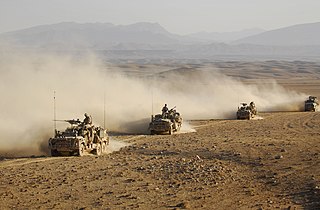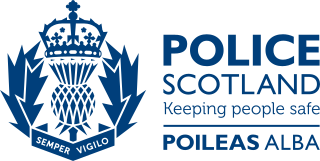Related Research Articles

A coast guard or coastguard is a maritime security organization of a particular country. The term embraces wide range of responsibilities in different countries, from being a heavily armed military force with customs and security duties to being a volunteer organization tasked with search and rescue without law enforcement authority. In most countries, a typical coast guard's functions are distinct from those of the navy and the transit police, while in certain countries they have similarities to both.

The Metropolitan Police Service (MPS), until recently officially known as the Metropolitan Police, which is still its common name, serves as the territorial police force responsible for law enforcement and crime prevention within the ceremonial county of Greater London. In addition, it is responsible for specialised tasks throughout the United Kingdom, such as UK counter-terrorism measures, and the protection of certain individuals, including the monarch, royal family, governmental officials, and other designated figures. Commonly referred to as the Met, it is also referred to as Scotland Yard or the Yard, after the location of its original headquarters in Great Scotland Yard, Whitehall in the 19th century. Its present headquarters are near there at New Scotland Yard on the Victoria Embankment.

The New South Wales Police Force is a law enforcement agency of the state of New South Wales, Australia, established in 1862. With more than 17,000 police, it is the largest police organisation in Australia, policing an area of 801,600 square kilometres with a population of more than 8.2 million people.
Responsibilities for traditional coast guard duties in Australia are distributed across various federal, state and community agencies. The de facto coast guard of Australia is the Maritime Border Command, a joint command of the Australian Defence Force and the Australian Border Force which works alongside the Australian Federal Police, the Australian Fisheries Management Authority, and the Australian Maritime Safety Authority. Each state and territory government have specific maritime safety agencies and police marine units. In addition, there are several private volunteer coast guard organisations which act as auxiliary search and rescue services and maritime safety educators with the largest organisations being the Royal Volunteer Coastal Patrol established in 1937, the Australian Volunteer Coast Guard established in 1961, and Marine Rescue New South Wales established in 2009.
The Specialist Operations directorate is a unit of the Metropolitan Police in London, England. It is responsible for providing specialist policing capabilities, including national security and counter-terrorism operations. The Specialist Operations directorate is currently led by Assistant Commissioner Matt Jukes.

Special Tasks and Rescue Group is the Police Tactical Group of the South Australia Police.

Lancashire Constabulary is the territorial police force responsible for policing the ceremonial county of Lancashire in North West England. The force's headquarters are at Hutton, near the city of Preston. As of September 2020, the force has 3,088 police officers, 190 special constables, and 280 police community support officers (PCSO), 300 police support volunteers (PSV), and 2,287 staff.
The State Protection Group (SPG) is part of the Counter Terrorism & Special Tactics Command of the New South Wales Police Force and was established in 1991 to deal with extraordinary policing responses. The SPG directly supports police in high-risk incidents such as sieges with specialised tactical, negotiation, intelligence and command-support services. The unit also provides rescue and bomb disposal support, canine policing, and armoury services.
Special Emergency Response Team (SERT) is the Police Tactical Group of the Queensland Police Service (QPS) and also provides a high angle rescue response. SERT provides the QPS with the ability to respond to high risk situations incidents statewide. SERT is based in Brisbane and Cairns to ensure that specialists capabilities are available to support police at any location in Queensland.

The special forces of the Australian Defence Force are units of Special Operations Command and associated units of the Royal Australian Navy and the Royal Australian Air Force that conduct and or support special operations to advance and protect the national security of the Commonwealth of Australia. The special forces of Australia have a lineage to a variety of units raised in the Second World War such as the Independent and Commando Companies, Z Special Unit, Navy Beach Commandos, and the Coastwatchers. Australian special forces have most recently been deployed to Iraq in Operation Okra as the Special Operations Task Group, as the Special Operations Task Group in Afghanistan, in Afghanistan in support of the Australian Secret Intelligence Service and regularly for counter-terrorism pre-deploy to locations of major domestic events throughout Australia in readiness to support law enforcement such as the 2014 G20 Brisbane summit.

The Public Order and Riot Squad (PORS) is the full-time riot squad of the New South Wales Police Force. PORS reports via the Counter Terrorism and Special Tactics Command to the Deputy Commissioner Investigations and Counter Terrorism.
Until July 2012 the Specialist Response and Security Team (SRS) was a Police Tactical Group of the Australian Federal Police (AFP) having responsibility for tactical and specialist operations within the Australian Capital Territory. The Operational Response Group (ORG) had responsibility for AFP National and International tactical operations. In July 2012 the SRS was merged with the ORG to create the Specialist Response Group.
Police tactical group (PTG) is the generic term used to refer to highly trained Australian and New Zealand police tactical units that tactically manage and resolve high-risk incidents, including sieges, armed-offender situations and terrorist incidents.
A specialist law enforcement agency is a law enforcement agency which specialises in the types of laws it enforces, or types of activities it undertakes, or geography it enforces laws in, or these in combination.

Police Scotland, officially the Police Service of Scotland, is the national police force of Scotland. It was formed in 2013, through the merging of eight regional police forces in Scotland, as well as the specialist services of the Scottish Police Services Authority, including the Scottish Crime and Drug Enforcement Agency. Although not formally absorbing it, the merger also resulted in the winding up of the Association of Chief Police Officers in Scotland.
The National Special Operations Force (NSOF) has been Malaysia's main security force which serves as the first responder to any terror threats on the country's sovereignty after October 2016. The force covers elements from the Malaysian Armed Forces, Royal Malaysia Police and the Malaysian Maritime Enforcement Agency.
The Special Forces and Elite Forces include both a specially and higher trained unit and a small percentage of personnel from a specific Malaysian military branch, law enforcement or government agency. In Malaysia, the term 'Special Forces' is widely used by uniformed services for special forces, special operations forces and 'special' trained units while 'Elite Forces' for units that more trained and capable combat. Regular personnel must undertake specialized and higher training to be able to join the units of the 'Special and Elite Forces'. These "Special Elite Forces" are denoted by different beret colours, shoulder tabs, unit patches, skill badges and uniforms.
References
- ↑ New South Wales Police. New South Wales Governmernt Directory.
- ↑ "Organisational Structure – NSW Police Public Site". www.police.nsw.gov.au.
- ↑ "Specialist Operations - NSW Police Online". Archived from the original on 2011-11-26. Retrieved 2011-12-02.
- 1 2 "Counter Terrorism & Special Tactics - NSW Police Force". Archived from the original on 2008-07-22. Retrieved 2008-06-22.
- ↑ "State Crime Command - NSW Police Force". www.police.nsw.gov.au. Archived from the original on 2008-03-02.
- ↑ Callaghan, Bodie (January 2009). "Hard Working Heroes". Docklines. Edge Custom media: 35.